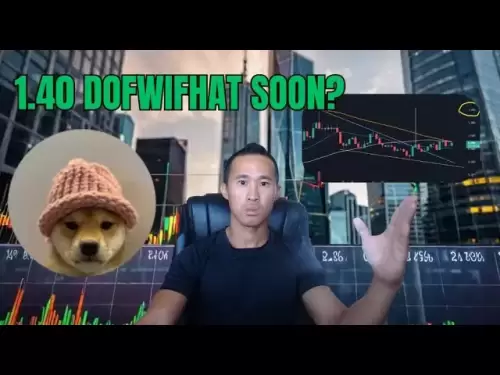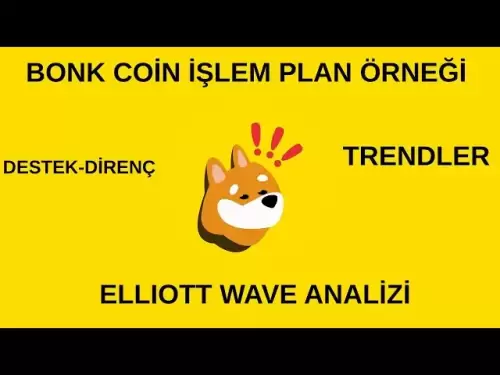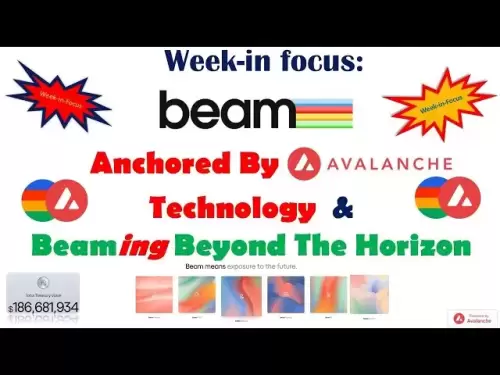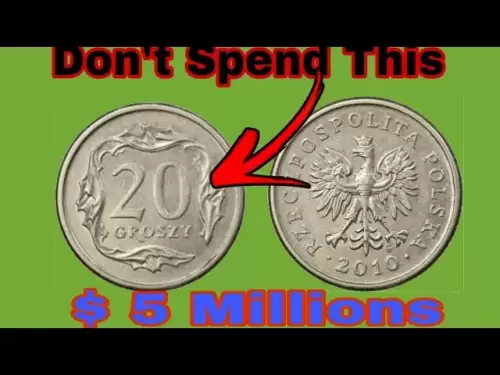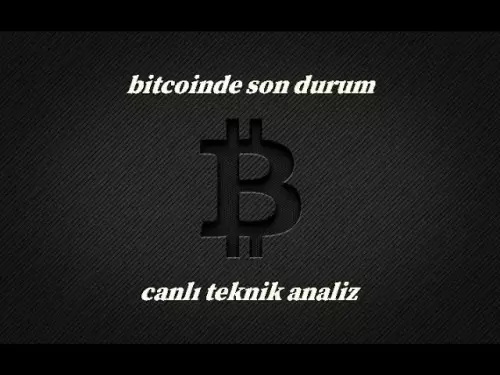-
 Bitcoin
Bitcoin $108,562.4295
0.46% -
 Ethereum
Ethereum $2,533.9553
1.52% -
 Tether USDt
Tether USDt $1.0002
-0.01% -
 XRP
XRP $2.2542
2.23% -
 BNB
BNB $662.4567
1.48% -
 Solana
Solana $151.4114
3.48% -
 USDC
USDC $0.9999
0.00% -
 TRON
TRON $0.2860
0.91% -
 Dogecoin
Dogecoin $0.1685
3.72% -
 Cardano
Cardano $0.5809
1.63% -
 Hyperliquid
Hyperliquid $39.2916
1.85% -
 Sui
Sui $2.8874
0.85% -
 Bitcoin Cash
Bitcoin Cash $496.5801
2.72% -
 Chainlink
Chainlink $13.3582
2.48% -
 UNUS SED LEO
UNUS SED LEO $9.0279
0.07% -
 Avalanche
Avalanche $18.0773
2.30% -
 Stellar
Stellar $0.2426
3.05% -
 Toncoin
Toncoin $2.9086
6.01% -
 Shiba Inu
Shiba Inu $0.0...01170
2.97% -
 Hedera
Hedera $0.1587
3.47% -
 Litecoin
Litecoin $87.4596
1.13% -
 Monero
Monero $317.0425
0.73% -
 Polkadot
Polkadot $3.3778
1.90% -
 Dai
Dai $0.9999
-0.01% -
 Ethena USDe
Ethena USDe $1.0001
-0.01% -
 Bitget Token
Bitget Token $4.4095
0.63% -
 Uniswap
Uniswap $7.3593
6.80% -
 Pepe
Pepe $0.0...09910
3.64% -
 Aave
Aave $274.7388
2.68% -
 Pi
Pi $0.4607
0.48%
Is Request (REQ) Coin an altcoin/scam?
Request (REQ) Coin qualifies as an altcoin due to its distinct features within the invoice management ecosystem, but its status as a scam cannot be conclusively determined, requiring further evaluation of its legitimacy, team, and underlying technology.
Dec 27, 2024 at 10:33 am

Key Points:
- Understanding Altcoins and Scams
- Request (REQ) Coin's Overview and History
- Technical Capabilities and Infrastructure
- Team, Partnerships, and Ecosystem
- Market Performance and Adoption
- Controversies and Critical Analysis
- Conclusion: Altcoin vs. Scam
Is Request (REQ) Coin an Altcoin/Scam?
Understanding Altcoins and Scams
Altcoins, a term coined from "alternative coins," represent cryptocurrencies other than Bitcoin, the dominant player in the digital asset landscape. While Bitcoin serves as a store of value and a medium of exchange, altcoins often offer unique features, such as faster transaction speeds, lower fees, or specific functionalities tailored to particular use cases.
Scams in the cryptocurrency realm are rampant, with unscrupulous actors utilizing deceptive tactics to defraud investors. These scams typically involve promises of unrealistic returns, fraudulent ICOs, or elaborate Ponzi schemes. Distinguishing between legitimate altcoins and fraudulent scams is crucial to ensure prudent investment decisions.
Request (REQ) Coin's Overview and History
Request Coin (REQ) debuted in 2017 as an Ethereum-based token. Its goal is to create a decentralized network for issuing and managing invoices, eliminating the need for intermediaries and streamlining the payment process.
The Request Network employs REQ as a utility token, facilitating the creation, exchange, and tracking of invoices within its ecosystem. The platform envisions a future where businesses of all sizes can seamlessly transact with each other without relying on traditional payment processors.
Technical Capabilities and Infrastructure
The Request Network is underpinned by a blockchain-based infrastructure that ensures data integrity, security, and transparency. The platform's architecture consists of the following core components:
- REQ Token: The native token used by the network to pay for transaction fees and incentivize network participants.
- Smart Contracts: Automated contracts that execute business processes based on predefined rules.
- DApp (Decentralized Application): A user-friendly interface that allows businesses to create, manage, and track invoices on the Request Network.
- Oracles: Third-party entities that provide real-world data to the blockchain network, ensuring the accuracy and validity of invoicing.
Team, Partnerships, and Ecosystem
The Request Network is supported by a team of experienced engineers and industry professionals with a track record of success in blockchain development and enterprise solutions. The platform has also forged strategic partnerships with various organizations, including:
- IBM: Collaboration to explore blockchain applications for supply chain management and digital payments.
- Accenture: Partnership to develop new invoice management solutions for businesses leveraging blockchain technology.
- SAP: Integration of the Request Network with SAP's Ariba Network to enhance invoice processing efficiency.
Market Performance and Adoption
Since its launch in 2017, the REQ token has experienced significant market fluctuations, reflecting the broader volatility of the cryptocurrency industry. Despite initial hype and speculation, the token's price has been susceptible to external market conditions and competition from alternative payment solutions.
The Request Network has made strides in gaining adoption among early adopters and niche industries. Companies such as Edenred, a provider of employee benefits and corporate payment services, have utilized the platform for invoice management and payment processing. However, widespread adoption remains a challenge due to factors such as regulatory uncertainty, scalability limitations, and the availability of competing solutions.
Controversies and Critical Analysis
The Request Network has faced some controversies and criticism, including:
- Centralization Concerns: Critics have raised concerns about the potential centralization of the network, arguing that a small number of validators could exert undue influence on decision-making.
- Slow Development Progress: Some observers have questioned the pace of development and innovation on the platform, expressing concerns about the lack of major upgrades or significant new features.
- Competition and Scalability: The Request Network operates in a competitive landscape with alternative invoice management solutions based on traditional and blockchain technologies. Scalability limitations have also been identified as a potential bottleneck to widespread adoption.
Conclusion: Altcoin vs. Scam
Based on the analysis presented, Request (REQ) Coin can be classified as an altcoin due to its unique features and use case within the invoice management ecosystem. While the platform has faced challenges and controversies, it remains an innovative player in the blockchain industry.
Determining whether an altcoin is a scam requires a thorough evaluation of factors such as the project's legitimacy, the team's track record, and the technical feasibility of the underlying technology. Caution and due diligence are advised before investing in any cryptocurrency, particularly those that promise unrealistic returns or make exaggerated claims.
FAQs Related to Request (REQ) Coin:
Q: What is the use case of REQ token?
A: REQ is a utility token used to pay for transaction fees and incentivize network participants on the Request Network.
Q: Is the Request Network decentralized?
A: While Request Network aims for decentralization, concerns have been raised regarding the potential centralization of the network's validators.
Q: What is the difference between an altcoin and a scam?
A: Altcoins are alternative cryptocurrencies that offer unique features or use cases. Scams are fraudulent schemes that exploit investors with false promises or unrealistic returns.
Q: How can I invest in REQ Coin?
A: REQ Coin can be purchased on various cryptocurrency exchanges, such as Binance, Coinbase, and Kraken.
Q: What are some competitors of the Request Network?
A: Competitors of the Request Network include traditional invoice management systems, as well as blockchain-based platforms such as B2Bpay and InvoiceMate.
Disclaimer:info@kdj.com
The information provided is not trading advice. kdj.com does not assume any responsibility for any investments made based on the information provided in this article. Cryptocurrencies are highly volatile and it is highly recommended that you invest with caution after thorough research!
If you believe that the content used on this website infringes your copyright, please contact us immediately (info@kdj.com) and we will delete it promptly.
- Coin-Flipping Chaos: A Look at Pokémon TCG's Luckiest (and Riskiest) Cards & Deck Ranking
- 2025-07-07 05:10:12
- Crypto Coins, DEXTools, and the Trending Triumvirate: Jupiter, Kamino, and Wormhole
- 2025-07-07 05:10:13
- Ethereum's Evolution: Gas Limits, Vitalik Buterin, and the Institutional Embrace
- 2025-07-07 05:30:12
- Pepe Coin vs. LILPEPE: Price Predictions and the Future of Meme Coins
- 2025-07-07 05:35:13
- Litecoin, HBAR, and Altcoins: Navigating the Crypto Landscape in 2025
- 2025-07-07 04:30:13
- CZ, TON, and the UAE Golden Visa: Is It Too Good to Be True?
- 2025-07-07 05:40:12
Related knowledge

How to customize USDT TRC20 mining fees? Flexible adjustment tutorial
Jun 13,2025 at 01:42am
Understanding USDT TRC20 Mining FeesMining fees on the TRON (TRC20) network are essential for processing transactions. Unlike Bitcoin or Ethereum, where miners directly validate transactions, TRON uses a delegated proof-of-stake (DPoS) mechanism. However, users still need to pay bandwidth and energy fees, which are collectively referred to as 'mining fe...

USDT TRC20 transaction is stuck? Solution summary
Jun 14,2025 at 11:15pm
Understanding USDT TRC20 TransactionsWhen users mention that a USDT TRC20 transaction is stuck, they typically refer to a situation where the transfer of Tether (USDT) on the TRON blockchain has not been confirmed for an extended period. This issue may arise due to various reasons such as network congestion, insufficient transaction fees, or wallet-rela...

How to cancel USDT TRC20 unconfirmed transactions? Operation guide
Jun 13,2025 at 11:01pm
Understanding USDT TRC20 Unconfirmed TransactionsWhen dealing with USDT TRC20 transactions, it’s crucial to understand what an unconfirmed transaction means. An unconfirmed transaction is one that has been broadcasted to the blockchain network but hasn’t yet been included in a block. This typically occurs due to low transaction fees or network congestio...

How to check USDT TRC20 balance? Introduction to multiple query methods
Jun 21,2025 at 02:42am
Understanding USDT TRC20 and Its ImportanceUSDT (Tether) is one of the most widely used stablecoins in the cryptocurrency market. It exists on multiple blockchain networks, including TRC20, which operates on the Tron (TRX) network. Checking your USDT TRC20 balance accurately is crucial for users who hold or transact with this asset. Whether you're sendi...

What to do if USDT TRC20 transfers are congested? Speed up trading skills
Jun 13,2025 at 09:56am
Understanding USDT TRC20 Transfer CongestionWhen transferring USDT TRC20, users may occasionally experience delays or congestion. This typically occurs due to network overload on the TRON blockchain, which hosts the TRC20 version of Tether. Unlike the ERC20 variant (which runs on Ethereum), TRC20 transactions are generally faster and cheaper, but during...

The relationship between USDT TRC20 and TRON chain: technical background analysis
Jun 12,2025 at 01:28pm
What is USDT TRC20?USDT TRC20 refers to the Tether (USDT) token issued on the TRON blockchain using the TRC-20 standard. Unlike the more commonly known ERC-20 version of USDT (which runs on Ethereum), the TRC-20 variant leverages the TRON network's infrastructure for faster and cheaper transactions. The emergence of this version came as part of Tether’s...

How to customize USDT TRC20 mining fees? Flexible adjustment tutorial
Jun 13,2025 at 01:42am
Understanding USDT TRC20 Mining FeesMining fees on the TRON (TRC20) network are essential for processing transactions. Unlike Bitcoin or Ethereum, where miners directly validate transactions, TRON uses a delegated proof-of-stake (DPoS) mechanism. However, users still need to pay bandwidth and energy fees, which are collectively referred to as 'mining fe...

USDT TRC20 transaction is stuck? Solution summary
Jun 14,2025 at 11:15pm
Understanding USDT TRC20 TransactionsWhen users mention that a USDT TRC20 transaction is stuck, they typically refer to a situation where the transfer of Tether (USDT) on the TRON blockchain has not been confirmed for an extended period. This issue may arise due to various reasons such as network congestion, insufficient transaction fees, or wallet-rela...

How to cancel USDT TRC20 unconfirmed transactions? Operation guide
Jun 13,2025 at 11:01pm
Understanding USDT TRC20 Unconfirmed TransactionsWhen dealing with USDT TRC20 transactions, it’s crucial to understand what an unconfirmed transaction means. An unconfirmed transaction is one that has been broadcasted to the blockchain network but hasn’t yet been included in a block. This typically occurs due to low transaction fees or network congestio...

How to check USDT TRC20 balance? Introduction to multiple query methods
Jun 21,2025 at 02:42am
Understanding USDT TRC20 and Its ImportanceUSDT (Tether) is one of the most widely used stablecoins in the cryptocurrency market. It exists on multiple blockchain networks, including TRC20, which operates on the Tron (TRX) network. Checking your USDT TRC20 balance accurately is crucial for users who hold or transact with this asset. Whether you're sendi...

What to do if USDT TRC20 transfers are congested? Speed up trading skills
Jun 13,2025 at 09:56am
Understanding USDT TRC20 Transfer CongestionWhen transferring USDT TRC20, users may occasionally experience delays or congestion. This typically occurs due to network overload on the TRON blockchain, which hosts the TRC20 version of Tether. Unlike the ERC20 variant (which runs on Ethereum), TRC20 transactions are generally faster and cheaper, but during...

The relationship between USDT TRC20 and TRON chain: technical background analysis
Jun 12,2025 at 01:28pm
What is USDT TRC20?USDT TRC20 refers to the Tether (USDT) token issued on the TRON blockchain using the TRC-20 standard. Unlike the more commonly known ERC-20 version of USDT (which runs on Ethereum), the TRC-20 variant leverages the TRON network's infrastructure for faster and cheaper transactions. The emergence of this version came as part of Tether’s...
See all articles





















